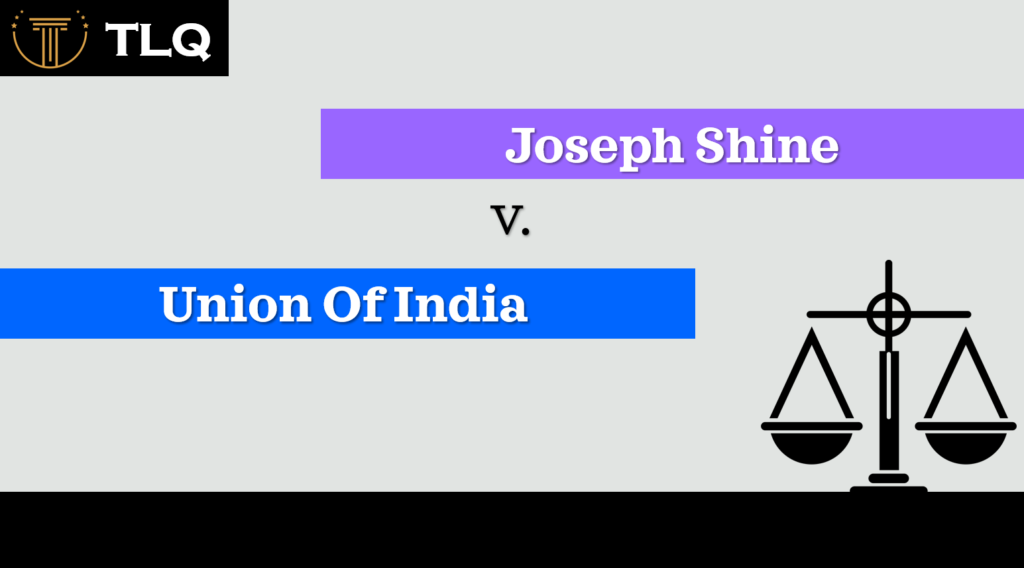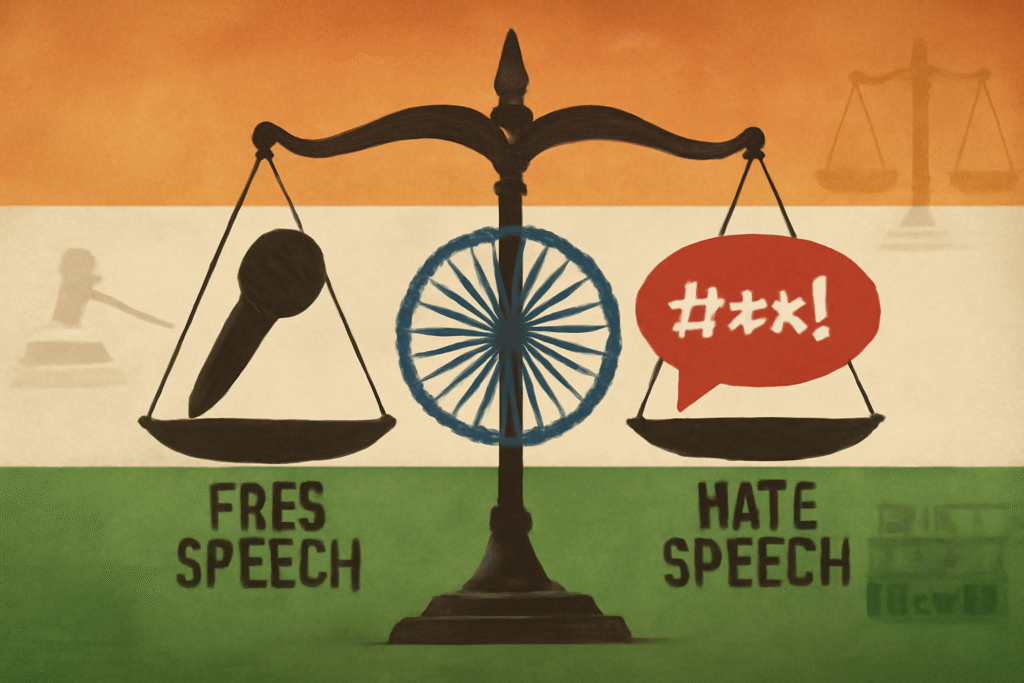Published On: 2nd August, 2024
ABSTRACT
Judicial review of arbitration awards serves as a critical mechanism to ensure fairness and adherence to legal standards in arbitration processes. This review explores the extent and grounds for court intervention in arbitration awards, highlighting the balance between respecting the autonomy of the arbitration process and safeguarding public policy and legal principles. Courts generally exhibit deference to arbitration awards, intervening only under specific circumstances such as evidence of arbitrator misconduct, fraud, manifest disregard of the law, or violations of public policy. This delicate balance underscores the importance of arbitration as an alternative dispute resolution mechanism while maintaining judicial oversight to protect the integrity and fairness of the process.
INTRODUCTION
Trade and investment disputes between parties across national borders have increased as a result of globalization. One component of the Alternative Dispute Resolution (ADR) process that helps parties who wish to forego the customary drawn-out process of resolving disputes in local courts is arbitration. The parties to a disagreement refer it to one or more arbitrators, whose decision (the “award”) they agree to be bound by. This is a legal procedure for resolving disputes outside of the courts. Since the courts are already overworked, businesses can include arbitration clauses in any agreements they enter into. If a dispute occurs later, the parties may choose arbitration, in which a private judge appointed to the matter will have the authority to hear arguments and render a decision. This judge will be referred to as the arbitrator. The goal is to resolve disputes quickly rather than going through drawn-out legal proceedings and waiting an eternity for a verdict. The arbitrator renders an arbitral award that, like any other court ruling, is binding on both parties. This paper’s focus will be on the procedures, limitations, and possible grounds for Indian courts to examine or intervene in an international arbitral decision. It is not wholly unusual for a domestic court to use public policy as justification for nullifying or not implementing arbitral rulings. Both the United Nations Commission on International Trade Law Model Law on International Commercial Arbitration5 (UNCITRAL Model Law) and the Convention on the Recognition and Enforcement of Foreign Arbitral Awards4 (New York Convention) acknowledge the ability of a national court to invalidate and/or refuse enforcement of an award if doing so would be against public policy.
RESEARCH OBJECTIVE
This article aims to investigate the grounds for court intervention in arbitration awards, the extent of such intervention, the stages at which court intervention is permissible, and the significance of minor court intervention in arbitral proceedings.
ANALYSIS
An international legal framework that offers guidelines for managing and conducting international commercial arbitration is known as the UNICITRAL Model Law on Arbitration IN 1985. It is one of the three arbitration pillars established by the UN to help nations with disparate legal systems harmonize their arbitration legislation. Governments are allowed to duplicate or alter the model law, which has already been implemented by more than 70 jurisdictions because it is not a treaty. The Arbitration & Conciliation Act, 1996 was subsequently passed by the Indian Parliament in an effort to continue the reform process following the adoption of the Model Law on Arbitration by the United Nations Commission on International Trade Law (UNCITRAL) in 1985. The aforementioned Act incorporates the guidelines established by the UNCITRAL Model Law. This Act reduces court intervention in arbitration proceedings and speeds up final rulings, facilitating smooth corporate transactions and drawing in more foreign investment. It covers both local and international awards.
The decision of an arbitrator is final and binding on both parties like any other decision given by any court. Although the award given by the arbitrator is binding it can be set aside by the intervention of the court on very limited grounds at various stages of arbitration but it is on minimalistic interference of the courts.
LEGISLATIVE SCHEME ARBITRATION ACT 1996
The Act’s Section 5 specifies the minimal judicial intervention principle, which holds that the courts should only step in when necessary and only to the degree specified in this part. The parameters for the court’s intervention have been outlined in this section. The court must examine the processes but refrain from examining the award’s merits. By guaranteeing that the court’s obligation is restricted to supporting the arbitral procedure and should not intervene in it, it highlights the significance of the party’s autonomy and limits the function of the judiciary.
Section 34- If the party contesting the award can demonstrate the reasons listed in Section 34, they may be able to have the decision set aside. Therefore, following the passing off of the award, the court may meddle in the arbitration proceedings. All the restrictions specified in Section 34 are explicit, and narrow, and do not allow for any room for interpretation; the only exception being Section 34(2)’s use of the term “public policy of India.” Therefore, the discussion and extent of judicial action have always been included in the term “public policy.”
GROUNDS FOR INTERFERENCE
PUBLIC POLICY
Court decisions are seldom made on the basis of “public policy” unless there are exceptional circumstances. There are special instances, such as when the award would violate basic human rights or go against the state’s established legal system. The degree to which “public policy” influences the enforcement of “arbitral awards” may impact the maintenance of judicial independence differs throughout nations. It is essential to understand that “public policy” is malleable and subject to constant change. The parameters of what qualifies as “public policy” change over time to reflect shifting societal norms. The Arbitration Act aims to provide remedies in a timely manner in addition to avoiding litigation. An arbitral award can be set aside if it is contrary to the public policy of the jurisdiction where enforcement is sought. Public policy grounds can include issues of fraud, corruption, or awards that contravene fundamental principles of law and morality.
Extending the scope of Courts may intervene in the arbitral process or set aside arbitral awards on several grounds, which are often enumerated in national legislation and international conventions. The primary grounds include:
Lack of Jurisdiction: Courts can set aside an award if the arbitral tribunal lacks jurisdiction. This could occur if the arbitration agreement was invalid, or if the tribunal exceeded its mandate.
Procedural Irregularities: Awards can be challenged if there are significant procedural irregularities during the arbitration process, such as failure to provide a fair hearing, or breach of principles of natural justice (e.g., one party not being given an opportunity to present its case).
Manifest Disregard of the Law: Some jurisdictions recognize “manifest disregard of the law” as a ground for setting aside an award, though this is often narrowly interpreted. This occurs when the arbitrators are found to have ignored applicable legal principles.
Arbitrator Misconduct: If there is evidence of bias, corruption, or other forms of misconduct by the arbitrators, courts can intervene and set aside the award.
Non-Arbitrability of the Subject Matter: Certain disputes are not capable of being resolved by arbitration under the laws of some jurisdictions (e.g., criminal matters, and certain family law issues). If an arbitral tribunal issues an award on a non-arbitrable subject, courts can set it aside. Judicial intervention will allow for needless delay.
STAGES OF INTERVENTION
BEFORE
the possibility of advancing criminal proceedings exists if the prima facie case constitutes a criminal offence. It was held in the A. Ayyasamy v. A. Paramasivam & Ors. that when the court is satisfied that the allegations, made by one party over another, are serious and complicated it would be appropriate for the court to deal with the subject matter rather than relegating parties to arbitration, then alone the application under section 8 should be rejected.
Appointment of Arbitrators: Courts may intervene if there are disputes regarding the appointment of arbitrators, ensuring that the selection process adheres to the agreed-upon rules and maintains fairness.
Interim Measures: Courts may be asked to grant or enforce interim measures to preserve the status quo or prevent harm during the arbitration process.
AFTER
Enforcement of Awards: Courts play a crucial role in converting arbitration awards into enforceable judgments, especially in cases involving international arbitration under the New York Convention.
Setting Aside or Vacating Awards: Parties may seek to have an arbitration award set aside or vacated on specific grounds. This is typically done in the jurisdiction where the award was made.
DOCTRINE OF SEPARABILITY
The doctrine of separability, which states that an arbitration clause is regarded as separate & independent from the parent contract containing such arbitration clause, was developed in order to prevent easy challenges to the jurisdiction of an arbitral tribunal on the grounds that a contract which contained an arbitration clause itself was not valid. Consequently, it is necessary to evaluate the arbitration clause independently of the parent contract that contained it. Therefore, an error in the contract would not automatically render the arbitration clause or agreement void.
However, its position is still not clear in India where in certain landmark cases it has been said if an agreement is void so is the arbitration clause like in cases The Hon’ble Supreme Court has concluded in a number of cases, including UOI v. Jagdish Kaur48 and India Household and Healthcare Ltd. v. LG Household and Healthcare Ltd.49, that an arbitration clause in a contract would be null and void if the contract itself was void. provides that an arbitration agreement may be in the form of an arbitration clause in a contract or in the form of a separate agreement. If the doctrine is applied in letter and spirit, undoubtedly aim and objective of the Act would receive a boost.
CONCLUSION
Judicial review of arbitration awards represents a critical intersection between arbitration and the judicial system, balancing the autonomy of the arbitration process with the need for oversight to ensure fairness and legality. Courts have established limited grounds for intervening in arbitration awards to respect the principles of finality and efficiency that underpin arbitration. The extent of judicial intervention is typically constrained to ensure that arbitration remains a viable alternative to litigation. Courts generally do not re-examine the merits of the case but focus on specific grounds for review, including procedural fairness, arbitrator bias, and adherence to the arbitration agreement.
Grounds for intervention can vary by jurisdiction but commonly include instances of fraud, corruption, evident partiality, misconduct, and cases where the arbitrator exceeded their authority.
While the standards for judicial review are stringent, this oversight is crucial to maintaining the integrity of the arbitration process. It serves as a safeguard against potential abuses and ensures that the fundamental principles of justice are upheld. However, excessive judicial intervention can undermine the benefits of arbitration, such as speed, cost-effectiveness, and finality. In conclusion, the judicial review of arbitration awards is a delicate balance. Courts must carefully navigate their role to protect the legal rights of the parties involved without encroaching on the autonomy of the arbitration process. The limited and well-defined grounds for intervention help preserve this balance, ensuring that arbitration remains a trusted and effective method of dispute resolution.




